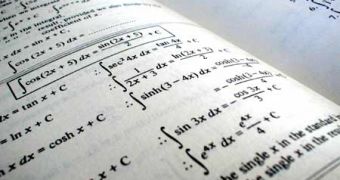There is a problem that does not only address Physics, but most of the courses taught in educational institutions, more pregnantly in high school. It involves the fact that the knowledge found in average school textbooks is old news. Physics, for example, spans over the discoveries of 2 millennia, covering the buoyancy principle of Archimedes or the motion laws of Isaac Newton, a bit of optics, but suddenly stops at the beginning of the 20th century.
That's so 100 years ago. Physics (History, Chemistry, Psychology and so on) has greatly evolved since then, but the recent progress is not described by manuals. Secretary of Technology Aneesh P. Chopra explains that he was surprised to find that the cathode ray tube is still presented as the key component of the TV set, while flat screen, LCD or HD technologies are completely unaddressed. "We have been actively teaching the wrong stuff," he admitted, as quoted by the Washington Post.
Students "are not necessarily going to be interested in Galileo dropping a rock off a building" in order to learn about inertia, explains Mike Fetsko, a Physics teacher in Henrico County. "But a black hole – that is pretty interesting," especially when presented in conjunction to the experiments going on at the LHC. "That is really one of my main goals: to give students experience with ongoing physics research so they don't think physics is dead. So they know there is significantly more to learn," he added.
This is why he and many other teachers and educators, from kindergarten to university levels, team up in order to update the content of textbooks. Instead of waiting for months for the content to be written, verified, assessed, corrected, printed, published and distributed, they decided to do this online, for a number of reasons. Such an online textbook – called a flexbook – is immediately available, its content can be modified, corrected and updated in no time, could provide more interactivity, while also being free of charge.
This could provide an immense advantage in Science, Engineering or History classes, where daily events and discoveries would represent major breakthroughs. The drawing of the initial texts should be done by next February and will primarily focus on relatively novel physics fields like biophysics or nanotechnology. If this initiative proves to be successful (and there's no reason to believe it won't), perhaps it will be extended to other fields and it could become a worldwide project. Until then, the flexbook will provide a parallel alternative to classic textbooks.

 14 DAY TRIAL //
14 DAY TRIAL //